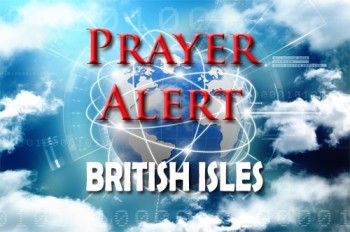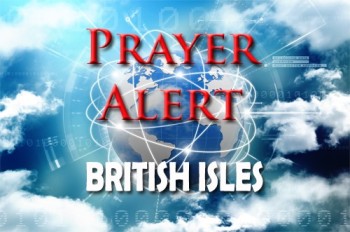Displaying items by tag: firefighters
Los Angeles: devastating wildfires
Wildfires ravaging Los Angeles have reached the Hollywood Hills, forcing over 100,000 people to evacuate. Six different fires, fuelled by dry hurricane-force winds, have killed at least five people, burned thousands of acres, and destroyed hundreds of homes. The Sunset fire in Hollywood Hills, while relatively small at fifty acres, has disrupted the entertainment industry, threatening iconic landmarks like Sunset Boulevard. On the west side, the Palisades fire has consumed over 15,000 acres and devastated neighbourhoods. To the east, the Eaton fire has scorched over 10,000 acres and destroyed 1,000 structures. Economic losses to date are estimated at $50 billion. Firefighters are stretched thin; they have been reinforced by teams from other areas, and even by prison inmates. See
Portugal: firefighters die battling wildfires
To date, seven Portuguese firefighters have died while battling over fifty wildfires ravaging the country’s central and northern regions. Portugal has mobilised around 5,300 firefighters and has also called for EU help. The fires have forced the closure of major motorways and disrupted train services in the north. Though authorities describe the situation as ‘calmer but still worrying’, many villages remain under threat. The hardest-hit area, Aveiro district, has lost dozens of homes, with four deaths reported. The fires, which have already burned through more than 10,000 hectares (24,710 acres) of forest and shrubland, could engulf a further 20,000 hectares. Portugal and Spain have so far recorded fewer fires than usual this year, but both remain vulnerable to the increasingly hot and dry conditions caused by global warming.
Canary Islands: wildfire forces 3,000 to evacuate
Almost 3,000 people have had to evacuate their homes in Tenerife as a wildfire, caused by embers left smouldering from an August blaze, re-ignited on the Spanish island. Unseasonably hot weather (up to 39°C) sparked the flames, which engulfed the north east of the island on 5 October. About 2,400 people have been evacuated from the town of Santa Ursula and another 600 from La Orotava. Teams of firefighters and six water-dropping helicopters worked to battle the fire overnight. The August fire had been brought under control but was never completely extinguished, with embers still burning in the forest. The firefighters have requested support from the army’s military emergency unit. The island’s councillor in charge of emergencies, Blanca Perez, told local radio this fire ‘has been stabilised, we are seeing how it evolves to determine if in a few hours residents can return to their homes’.
Firefighting challenges
Large-scale wildfires are occurring more frequently across the UK. The challenges are enormous: in the middle of nowhere, two-metre-high flames moving faster than anyone can run. It can take days to bring a fire under control, an exhausting ordeal for even the fittest firefighter. An officer said, ‘Wildfires are unlike any other fire, they change on a minute-by-minute basis. One minute a fire is knee-high, the next it’s above your head. It is one of the most arduous fires our crews face. Left unchecked, they rage for miles across the countryside. If the wind changes direction the tail of the fire could become the head, and it spreads in the opposite direction. You can walk for an hour with hand tools wearing boots, jacket, and helmet, before getting to the area you are going to be fighting.’ Conditions are brutal. See also this week’s France article, ‘We are waiting for rain’.
UK cities warned of wildfire risk
Last week's wildfires across London showed lessons learned tackling rural blazes must urgently be applied to built-up areas after grass fires spread to forty houses and shops nearby. Prolonged dry weather parching gardens, verges and green spaces followed by temperatures of 40C sparked blazes normally seen in the countryside. 500 wildfires have been reported so far this year, compared with 237 last year. The group commander for Hereford and Worcester Fire Service said, ‘Everything is bone-dry and services need to recognise the risk they've now got. If they don't, then they're naïve. There are very urban services that think wildfires are low down on the risk list. I understand their need to prioritise resources, but there must be a review.’ A 2021 risk assessment report for the government found that two out of eight fire services made no reference to wildfires in their risk management plans.
Wildfires around the world
The smoke plume of California’s Dixie Fire (the largest in US history) is so thick, only the red light of the sun can pierce the smoke particles, in a scene that looks like Mars. Over a hundred other large fires are raging elsewhere in the USA. Greece has been fighting the worst blazes in Europe amid blistering temperatures, leaving dozens in hospital. Their firefighting resources are strained, exhausted, and needing help; twenty countries including the UK recently sent reinforcements. Turkey’s blazes have swept through pine forests for two weeks. Fires rage in southern Italy, with Sicily and Sardinia among the regions hardest hit and hundreds evacuated. British Columbia has seen 5,800 sq km of forest burned since spring; 279 wildfires are currently raging. Smoke from Russia’s wildfires has reached the North Pole for the first time; smoke is drifting two thousand miles from Eastern Russia. See





